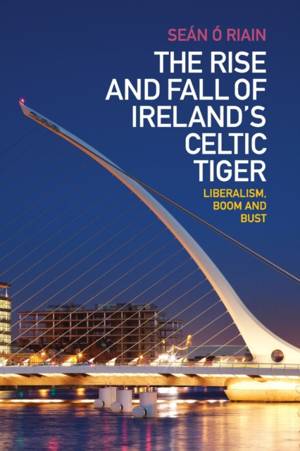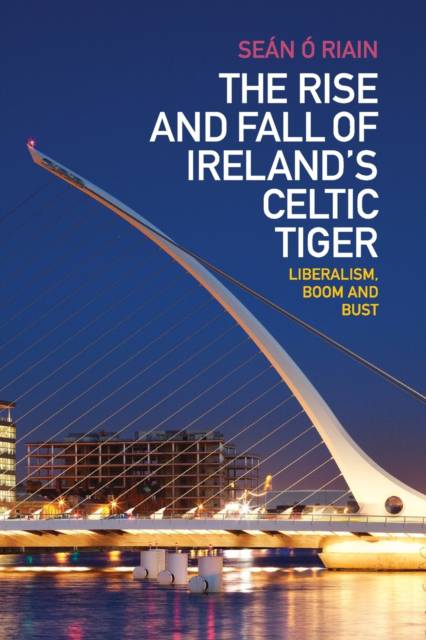
- Afhalen na 1 uur in een winkel met voorraad
- Gratis thuislevering in België vanaf € 30
- Ruim aanbod met 7 miljoen producten
- Afhalen na 1 uur in een winkel met voorraad
- Gratis thuislevering in België vanaf € 30
- Ruim aanbod met 7 miljoen producten
Zoeken
The Rise and Fall of Ireland's Celtic Tiger
Liberalism, Boom and Bust
Seán Ó Riain
Paperback | Engels
€ 44,95
+ 89 punten
Uitvoering
Omschrijving
In 2008 Ireland experienced one of the most dramatic economic crises of any economy in the world. It remains at the heart of the international crisis, sitting uneasily between the US and European economies. Not long ago, however, Ireland was celebrated as an example of successful market-led globalisation and economic growth. How can we explain the Irish crisis? What does it tell us about the causes of the international crisis? How should we rethink our understanding of contemporary economies and the workings of economic liberalism based on the Irish experience? This book combines economic sociology and comparative political economy to analyse the causes, dynamics and implications of Ireland's economic 'boom to bust'. It examines the interplay between the financial system, European integration and Irish national politics to show how financial speculation overwhelmed the economic and social development of the 1990s 'Celtic Tiger'.
Specificaties
Betrokkenen
- Auteur(s):
- Uitgeverij:
Inhoud
- Aantal bladzijden:
- 324
- Taal:
- Engels
Eigenschappen
- Productcode (EAN):
- 9780521279055
- Verschijningsdatum:
- 12/05/2014
- Uitvoering:
- Paperback
- Formaat:
- Trade paperback (VS)
- Afmetingen:
- 150 mm x 226 mm
- Gewicht:
- 566 g

Alleen bij Standaard Boekhandel
+ 89 punten op je klantenkaart van Standaard Boekhandel
Beoordelingen
We publiceren alleen reviews die voldoen aan de voorwaarden voor reviews. Bekijk onze voorwaarden voor reviews.











